Researchers in Cork launch new resources to support women through pregnancy loss
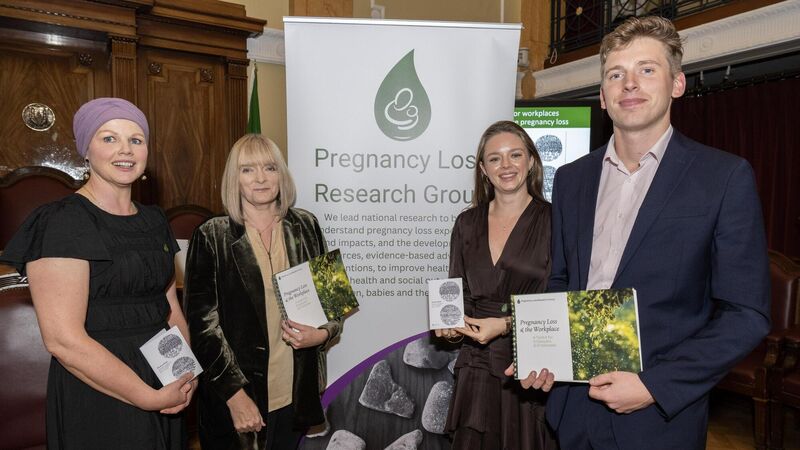
Marita Hennessy; Prof. Keelin O'Donoghue, CUMH; Dr. Caoimhe Ní hÉalaithe and Dr. Tommy Harty at the launch of Pregnancy Loss & the Workplace, A Toolkit for Employers & Employees, which took place at Cork City Council Chambers. Picture: Brian Lougheed
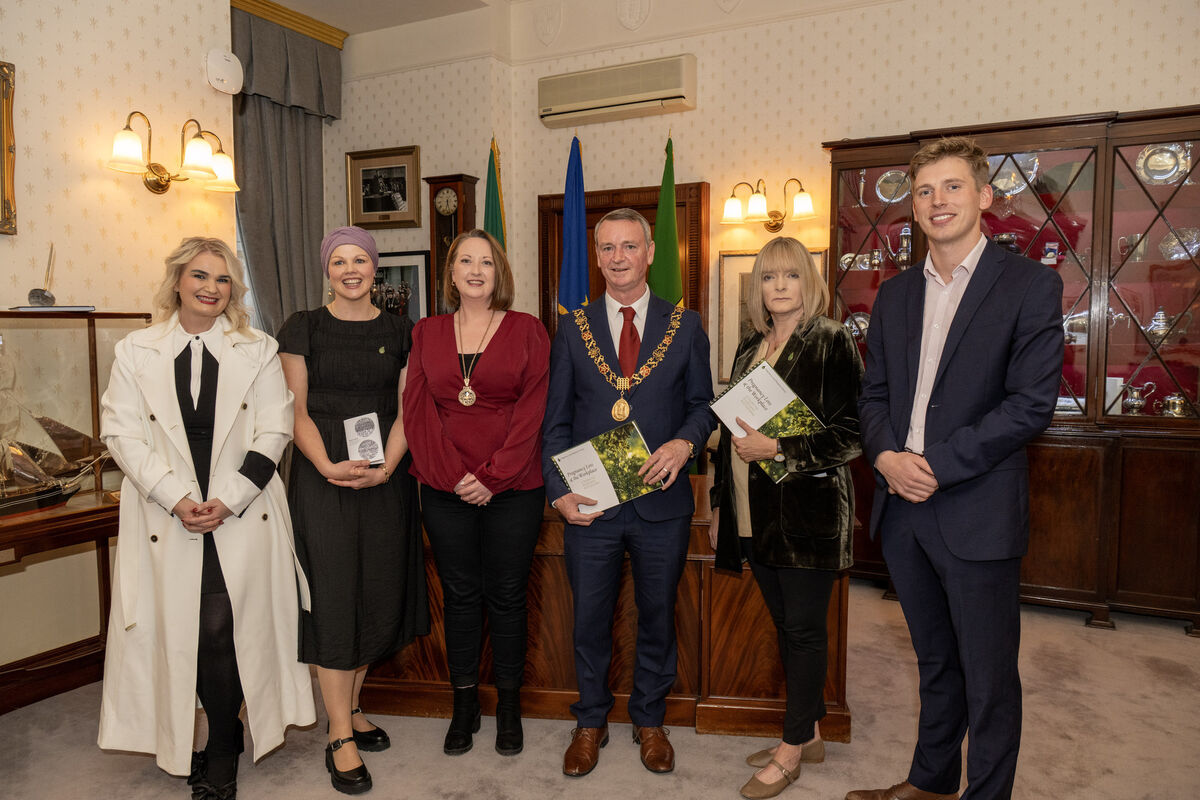
Pregnancy loss affects approximately one in four pregnancies, often before 12 weeks.
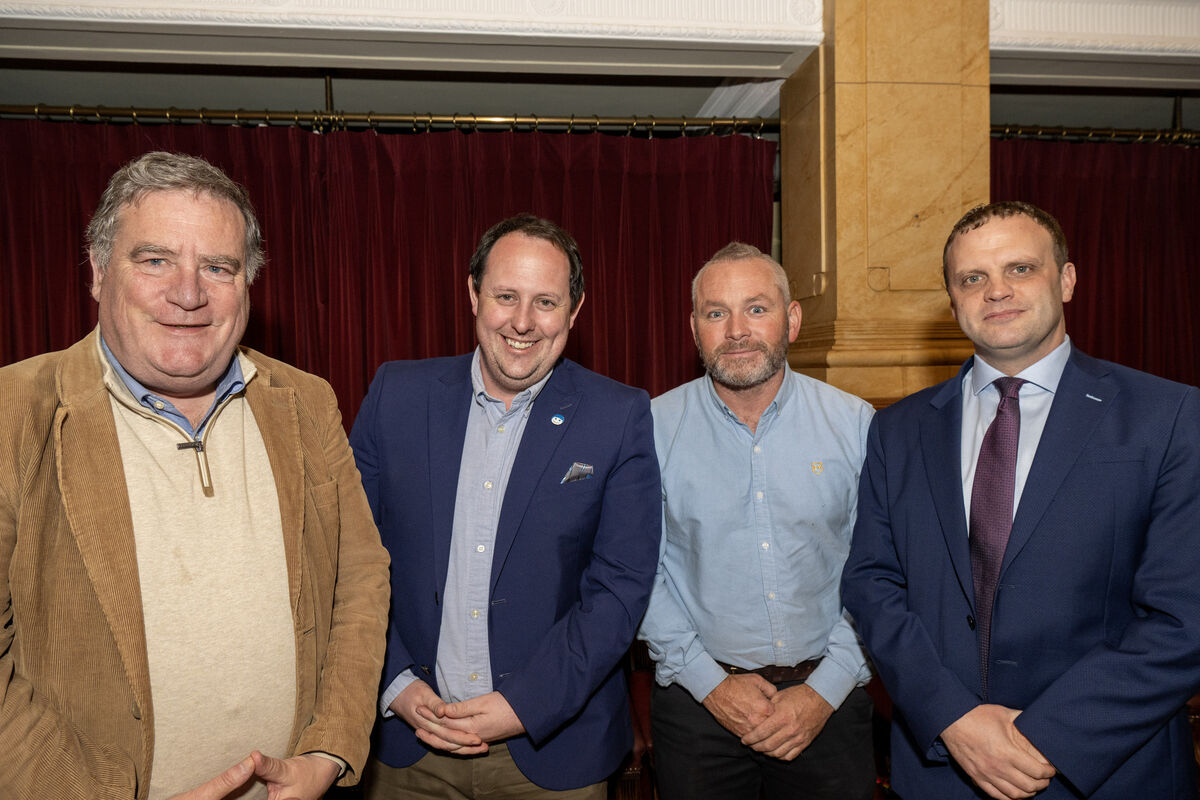
Between 2022 and 2023, the group reviewed existing policies in Ireland and internationally, and conducted surveys and interviews with women who had experienced pregnancy loss in the workplace in Ireland in the previous five years.
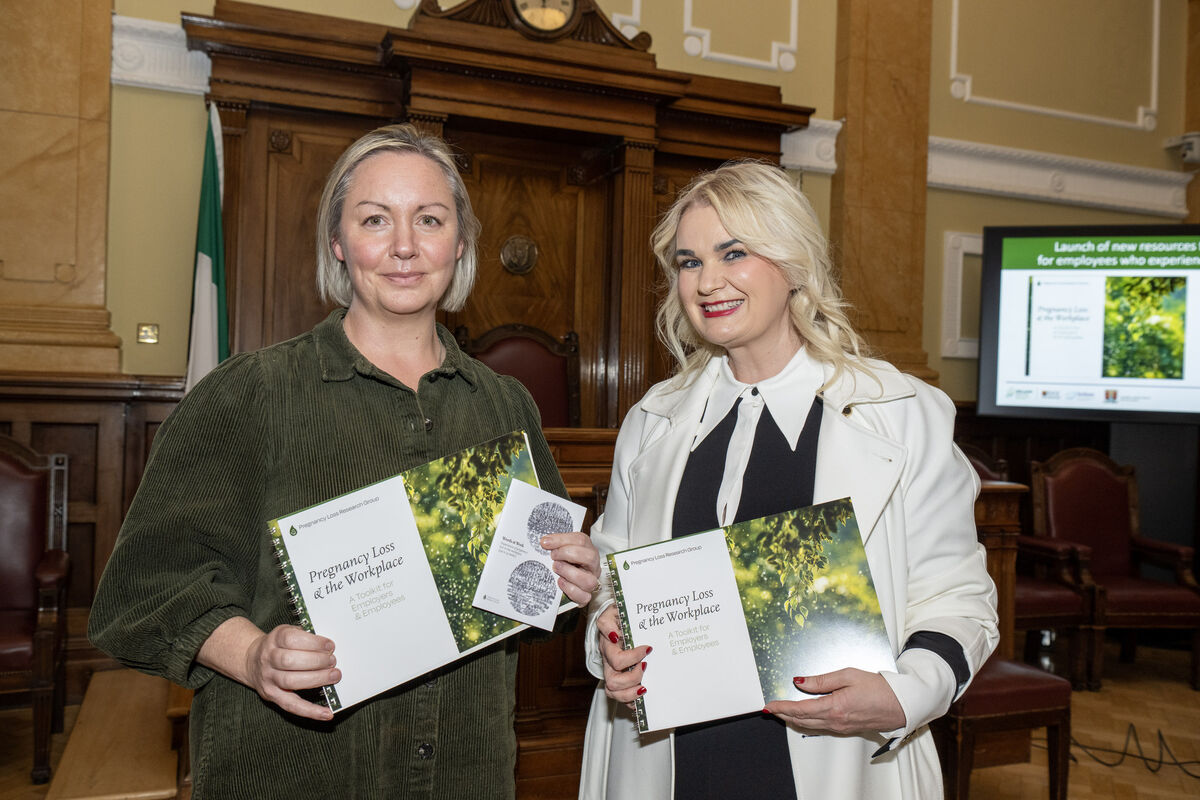
Dr Tommy Harty and Dr Caoimhe Ní hÉalaithe, doctors in specialist training in Obstetrics and Gynaecology, currently based at CUMH, co-led the development of the PLRG Pregnancy Loss and the Workplace Toolkit for Employers and Employees, with Professor O’Donoghue and Marita Hennessy, a researcher within the group.
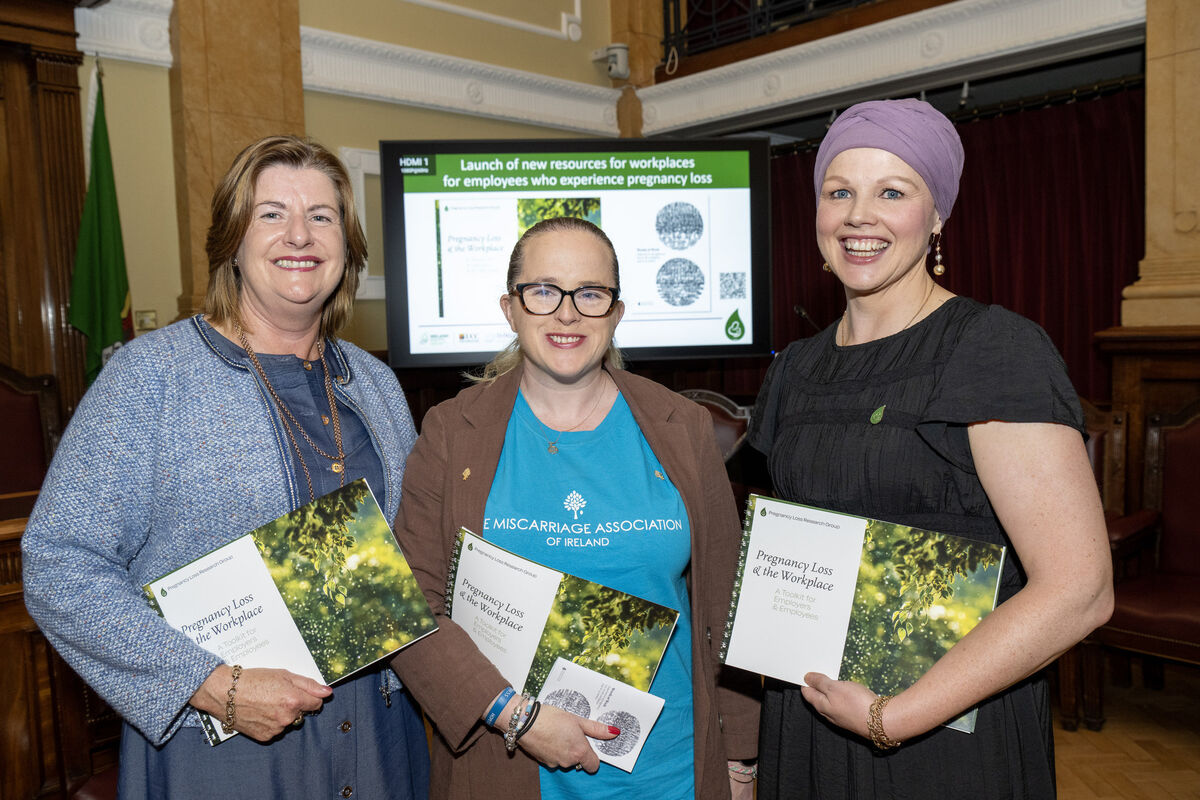
“People have different feelings when they come back to work, particularly for pregnancy loss that might be already announced and recognised. So where people are over 12 weeks or in later pregnancy, around 20 weeks, and everybody knows they’re pregnant, and then suddenly they’re not,” says Professor O’Donoghue.
- The PLRG has also published a book titled Words at Work, a collection of 23 texts – all direct quotations from people with experience of pregnancy loss who participated in the PLACES project.
- See www.ucc.ie/en/pregnancyloss for more information.







 App?
App?


